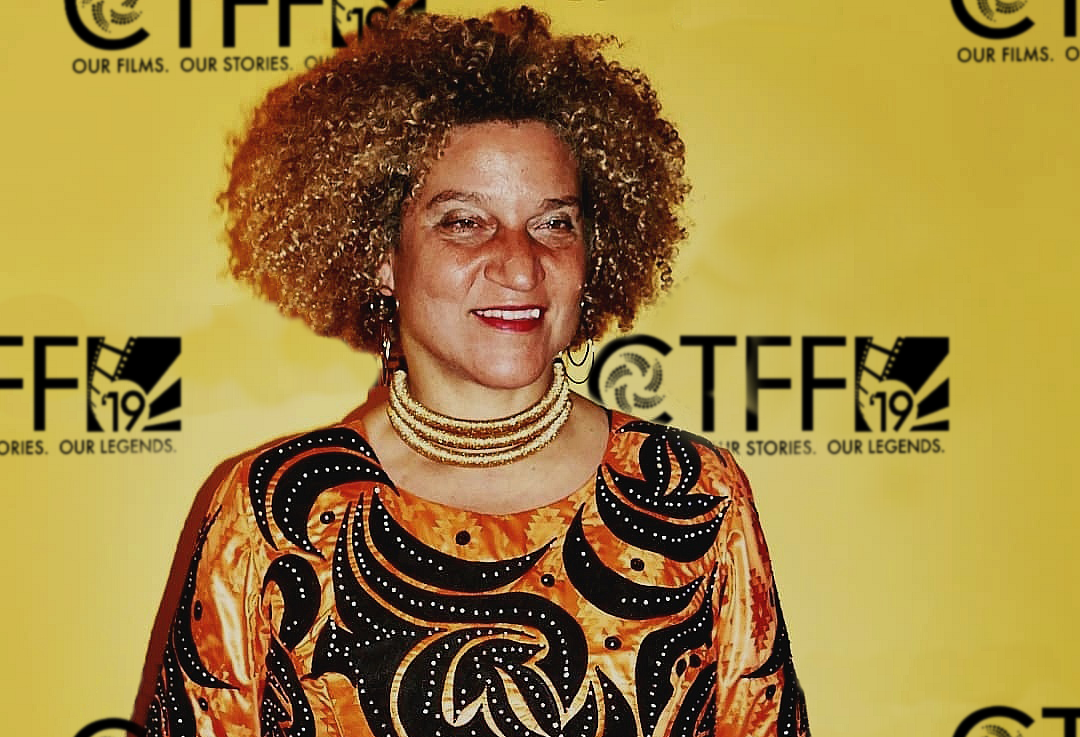on
BY SELINA McCALLUM
In April 2019, she was recognized and awarded the Black Business and Professional Association Harry Jerome Award for Culture, an award given to a black individual who is a change maker when it comes to enhancing Caribbean and African culture in the community.
That was the first time I was introduced to Frances-Anne Solomon, and had the pleasure of speaking to her briefly among all the other people that were congratulating her.
As a black female filmmaker myself, I was thrilled to be introduced to an ambitious, talented and highly experienced individual in the film industry.
Solomon is an award-winning filmmaker, writer, producer, curator, and entrepreneur in film, TV, radio, theatre, and news media.
Born in England of Trinidadian parents, she was raised and educated in the Caribbean and Canada before moving to Great Britain where she built a successful career with the BBC as a TV Drama Producer and Executive Producer.
She was an executive producer for both Love is the Devil by John Maybury, and Speak Like A Child by John Akomfrah. She also produced and directed films and television programs through her production company Leda Serene Films.
She moved to Toronto in 2000, where she continued to create, write, direct, and produce her own projects.
Her most recent project is her third feature film, HERO, which is inspired by the extraordinary life and times of Trinidad and Tobago citizen, diplomat and Judge Ulric Cross, the most decorated West Indian of World War II.
Solomon speaks about what inspired her to make this film.
“Ten years ago, my mother was approached by one of her friends who was a lawyer in Trinidad. He wanted her to help him make a film about one of their mutual friends which was Ulric Cross. My mom got involved, and really I think they wanted me to do it, but I was really busy at the time,” said Solomon.
Solomon’s mother’s friend was dying, but before he died he said his last wish was to know that the film was going to be made.
“So after his death, I got involved with my mother to do it. At the time, I didn’t know much about Ulric. I knew he served in the Second World War, but when I began to research his life, I discovered that after the war he had this incredible life,” said the Director of HERO.
Cross was a member of the highly decorated group of Caribbean pilots who flew combat missions for the United Kingdom’s Royal Air Force (RAF) in World War II. After his service, Cross played an active and important role in the Pan African Movement, which led to the creation of the 28 modern Caribbean and 54 modern African nations.
“The more research I did, I realized that all these places are amazing places. I became committed passionately to make this film a reality because a lot of people don’t know that story. They don’t know the role that the Caribbean diaspora and people of African heritage played in the African Liberation Movement. I found it very inspiring,” said Solomon.
Funded by Canada’s Telefilm and Trinidad’s Republic Bank, HERO has an all-star international cast that includes Trinidad and Tobago’s Nickolai Salcedo, in the lead role of Ulric Cross, alongside Canada’s Peter Williams (Stargate SG1), UK stars Joseph Marcell (Fresh Prince of Bel Air), Fraser James (Resident Evil), Pippa Nixon (John Carter), and Ghanaian superstars John Dumelo, Adjetey Anang and Prince David Oseia.
“It was an amazing experience working with all the incredible actors. Everybody was very excited about the project because, again, when do you get the chance to play the President of Tanzania?” said Solomon.
“They really appreciated the opportunity to play roles that were not drug dealers, gang members and criminals, but leaders, world changers and visionaries,” said the Director of HERO.
Solomon says that there are so many films about slavery, but none about bringing us all back together.
One of the challenges she faced in making this film was receiving funding at first for a film like this that has never been made before. The second challenge was ensuring that the history shown through the film was still entertaining.
“You can’t really talk about the whole story without understanding the African Liberation Movement, colonialism, and understanding how somebody from Trinidad can end up in Tanzania in 1974. So there’s a lot of history that needed to be integrated into it,” said Solomon.
HERO was launched in Toronto in February 2019, and had a very exciting journey in the United Kingdom. There was also a theatrical release which included 50 screenings across the country. It was also screened in Trinidad, in New York and in Washington, DC.
Now the Canadian filmmaker’s world tour stops in Los Angeles.
HERO will be the film screened on opening night of the Pan African Film & Arts Festival (PAFF) on Tuesday, February 11th, 2020, at the Directors Guild of America Theatre.
PAFF is the largest black film festival in America with approximately 200 films from around the world and 100 fine artists participating in the largest Black History Month cultural event in the United States.
The festival will be held from February 11th to February 23rd, 2020, at the Cinemark Rave 15 Theaters and the Baldwin Hills Crenshaw Plaza in Los Angeles.
“To be selected as the opening film for this prestigious festival is an honour,” says Solomon. “It’s a go-to event for black Hollywood and to be recognized in this way by an audience of my peers is important to me as a Caribbean filmmaker of African descent.”
PAFF’s legacy is evidenced by the success of directors and award-winning actors and actresses who’ve spotlighted their work at the festival, including names as Denzel Washington, Kevin Hart, Jamie Foxx, and Ava Duvernay.
Most filmmakers seek to arouse emotions in their audience. They want the viewers to leave from the screening feeling different from how they walked in, or gain a new perspective.
Solomon does just that, as she has been awarded many times for her previous empowering films.
Her film A Winter Tale received many prestigious international awards, including at Fespaco 2009 (Africa’s Oscars held biannually in Burkina Faso West Africa) where it won The Paul Robeson Award for Best Diaspora Film.
Currently, an award-winning filmmaker, producer, curator and entrepreneur, Solomon is also a 2019 member of the Academy of Motion Picture Arts and Sciences. She is also the Founder and CEO of CaribbeanTales Media Group in Canada and Barbados that includes an international film festival and distribution company.
For other young black girls aspiring to be filmmakers, Solomon leaves these words of hope.
“There are opportunities,” said Solomon. “It’s still hard and there’s still lots of prejudice, but now is the time. There are endless opportunities.”
Stay in the loop with exclusive news, stories, and insights—delivered straight to your inbox. No fluff, just real content that matters. Sign up today!













